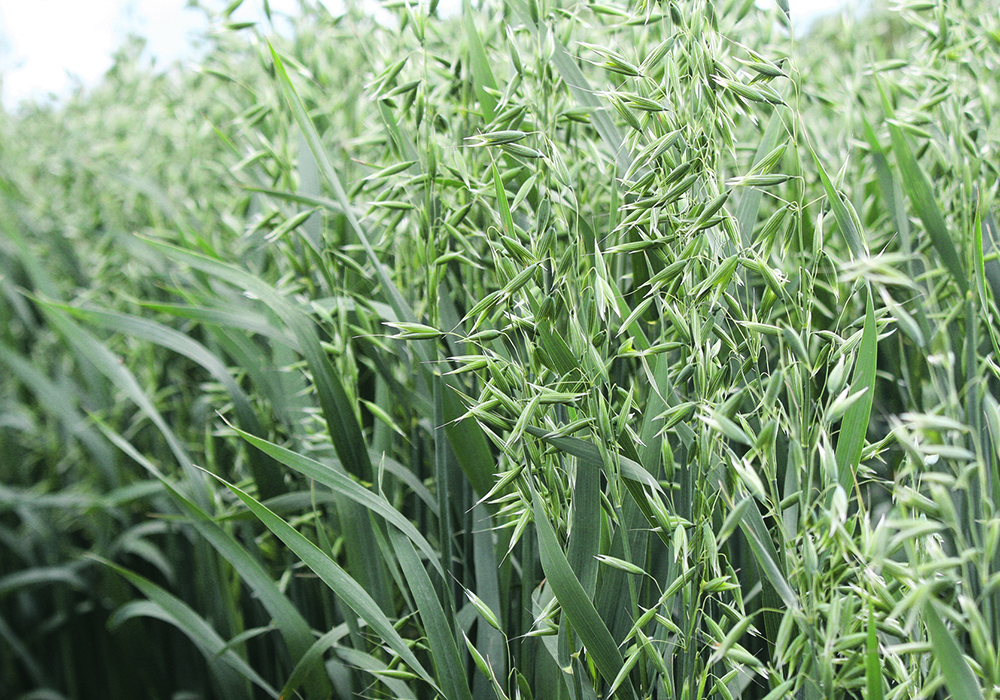Genetic modification was used to increase the amount of oleic acid in the grain, which could also apply to other crops
WINNIPEG — Oats are already a superfood, considering they contain healthy compounds such as beta-glucan that help lower cholesterol and control blood sugars.
However, scientists at McGill University in Montreal believe it’s possible to make oats even healthier by improving the quality and quantity of the oil in oat grains.
The researchers have found a way — using genetic modification — to increase the amount of oleic acid in oats. Oleic acid is a type of fatty acid known for improving heart health.
Read Also

Defence investments could benefit agriculture
A bump in Canada’s NATO spending commitments could lead to infrastructure investments that would benefit rural areas
“We observed a remarkable increase of up to 34 per cent in oleic acid content in oat grains,” the McGill researchers wrote in a paper published last month in Plant Biotechnology Journal.
“These findings underscore the effectiveness of genetic engineering in manipulating oat oil composition and content.”
Oats are not traditionally used for the oil content in the grain because there’s a small amount of oil relative to oilseed crops such as canola.
Nonetheless, for a cereal crop, oats contain a high amount of lipids, or fatty compounds. There could be benefits for human nutrition by increasing the oil content and producing more fatty acids in the grain.
“Oats are well known for their high fibre content, but now, with enriched fat profiles, they offer an even more comprehensive nutritional package,” said Zhou Zhou, a post-doctoral researcher in plant science at McGill and lead author of the study.
Zhou worked on the study with Jaswinder Singh, an associate professor in plant science at McGill.
The techniques used in the research project suggest it’s possible to improve the nutritional profile of many crops, Singh said.
“This breakthrough holds significant promise for both the agricultural industry and consumer health, offering a novel approach to the development of nutrient-rich crops.”
The scientists introduced genes from Arabidopsis, a member of the brassica family, and from sesame plants to create the lines of oats with higher levels of oleic acid.
Therefore, the new line of oats are transgenic.
If the high oleic oats are developed and become available to Canadian oat growers, it could be helpful for the oat milk industry.
The modification of the oil inside the grain means that oat-based products, such as oat milk, are less likely to spoil.
The McGill findings are part of a scientific trend in Canada, where researchers are seeking new ways to harness the health benefits of oats.
Agriculture Canada scientists in Manitoba have been studying the potential of oat protein and whether it could compete with soy, whey, casein and pea protein for a share of the US$20 billion global market for protein bars, drinks, supplements and ingredients.
“It’s a relatively new area…. The big companies (have) focused a lot on pea protein. Now it’s shifting to oats,” said Sijo Joseph, an Agriculture Canada research scientist who works in Winnipeg and Morden, Man.
“Oat protein has a very neutral flavour, which opens up a lot of formulations.”
Joseph and other scientists have been looking at the potential health benefits of oat protein.
Their research shows that it can reduce blood cholesterol levels in rats, and the initial results are promising.
“It inhibits the cholesterol (formation) in the body.”
The oat protein works in a different way than beta glucan. It’s more like a statin, a drug used to lower cholesterol in humans.
The next step for the oat protein research is a human trial to see if the results for rats are valid for human health.
Such trials require time and money, but if successful, it could lead to a “Heart Health” claim for oat protein.
















